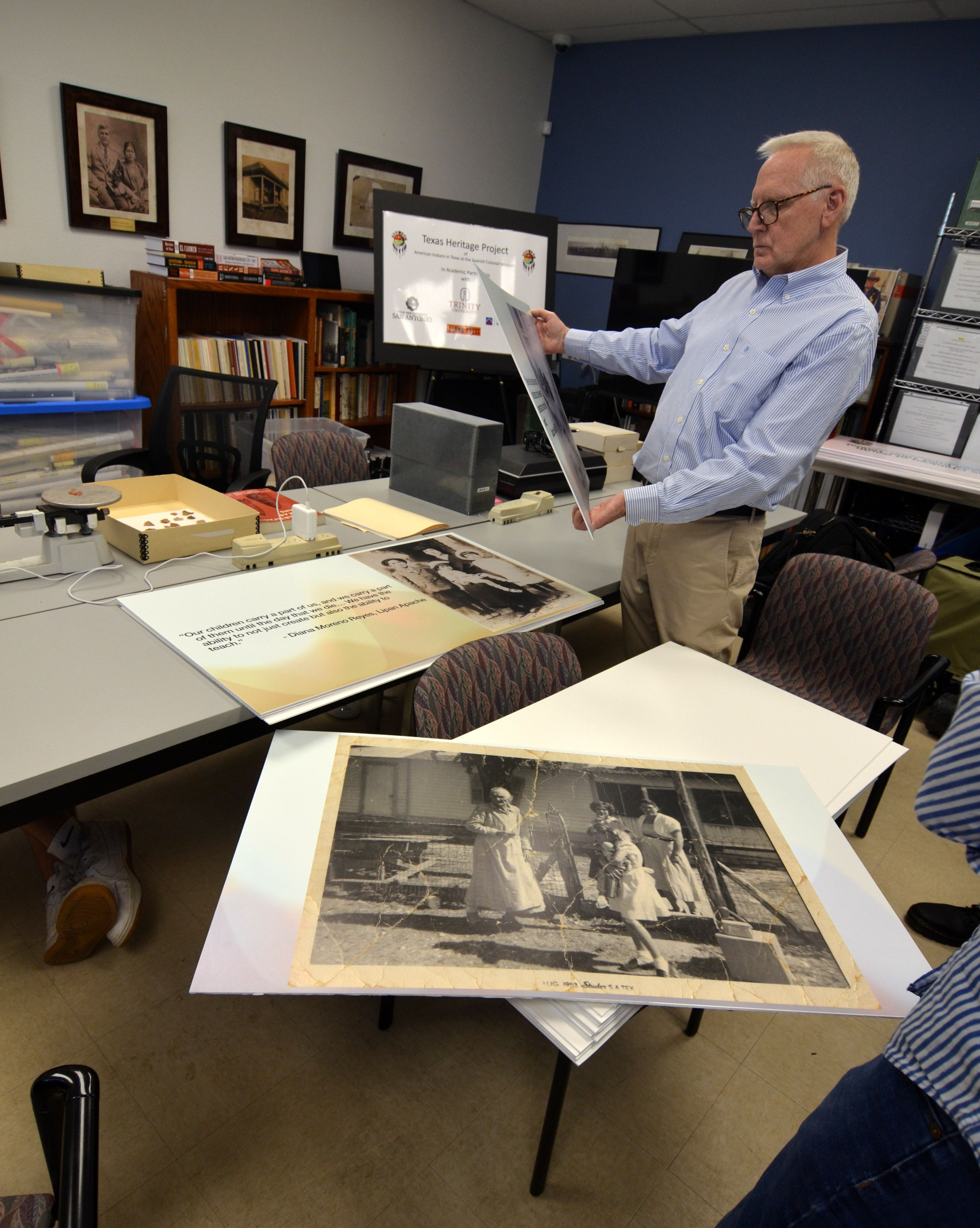
Texas Heritage Project of American Indians in Texas at the Spanish Colonial Missions
Texas Historical Foundation board members and staff will present the recent grant to Texas Heritage Project of AITSCM in support of the creation of four exhibits developed from their expansive Digital Repository. The presentation will take place at the group’s archive space in downtown San Antonio this Friday, September 22 at 2:30 p.m.
Founded in 2014 as an outgrowth of the American Indians in Texas at the Spanish Colonial Missions, the primary focus of the Texas Heritage Project is to expand upon the contributions and histories of native peoples in South Central Texas by producing research and preserving artifacts on the subject. This THF grant supports the development of four historical exhibits curated from THP’s Digital Repository, an archive of materials on a wide array of subjects relating to regional American Indian histories.
The Repository is among the most comprehensive of its kind, in part owing to a unique open-call submission style in which the letters, photographs, and artifacts belonging to members of South Texas’ Indigenous community are professionally documented for collection inclusion before being returned to their owners.
To learn more about the Texas Heritage Project and visit the Digital Repository, visit aitscm.org.
Mexican American Civil Rights Institute
Later that afternoon, a presentation of THF’s 2022 grant to the Mexican American Civil Rights Institute will be held at their new visitor center in downtown San Antonio. The grant supports MACRI’s efforts to add the former Corpus Christi home of Jose Cisneros to the National Register of Historic Places. The Cisneros house is the last remaining structure associated with the landmark 1970 civil rights case Cisneros v. Corpus Christi Independent School District, extending the rights afforded in Brown v. Board of Education to Mexican American students.
At the time of the case, de facto segregation of students of Mexican descent was common in Texas classrooms. Despite the ostensible end of separate but equal classrooms brought by Brown v. Board of Education in 1954 and the passage of the 1964 Civil Rights Act, schools had found a loophole: Mexican Americans were not explicitly categorized as a minority group and thus not protected.
As a result, Corpus Christi ISD as well as other school districts throughout the state and nation were able to side-step integration and maintain segregated classrooms. Prior to the Brown ruling, the district maintained three distinct systems; schools for Anglos, schools for African Americans, and schools for Mexican Americans. Following the Supreme Court decision, the latter two were integrated, but Corpus Christi’s all-Anglo schools remained intact; a move made possible by the lack of recognized minority status for Mexican Americans.
In 1968, José Cisneros along with 25 other Mexican American parents of Corpus Christi students challenged this dual system constituted segregation by the state on the grounds that Mexican Americans were a recognizable minority group. In turn, the district argued that no such dual system existed, as such a distinction had never been legislated. The parents prevailed in 1970, after the case reached the Supreme Court.
If you are a THF director or member and wish to attend either event, please email grants@texashistoricalfoundation.org for more details.
